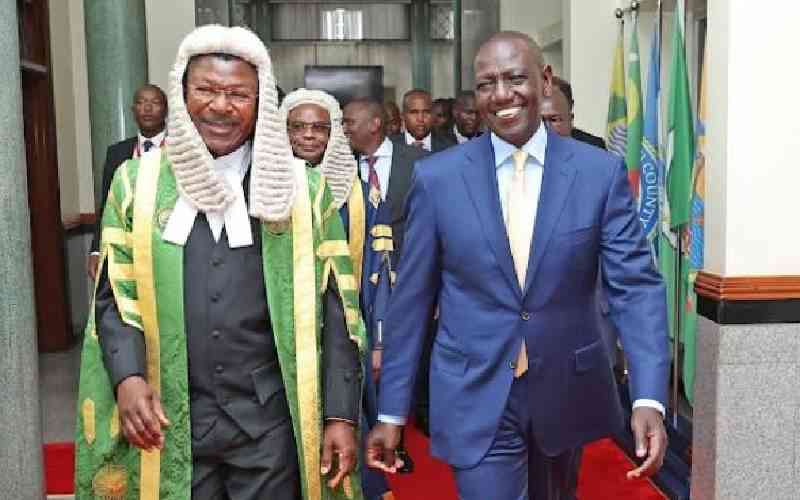×
The Standard e-Paper
Smart Minds Choose Us

President William Ruto has detailed how his administration's bottom-up plan is progressively transforming the country's economy as he announced the government will in December repay $300 million (Sh45 billion) out of the $2 billion Eurobond debt that is due next year.
The President, in his second State of the Nation address, painted a picture of the gains his administration has made in one year even as he acknowledged the difficulties the government is facing in the wave of unprecedented macroeconomic challenges.